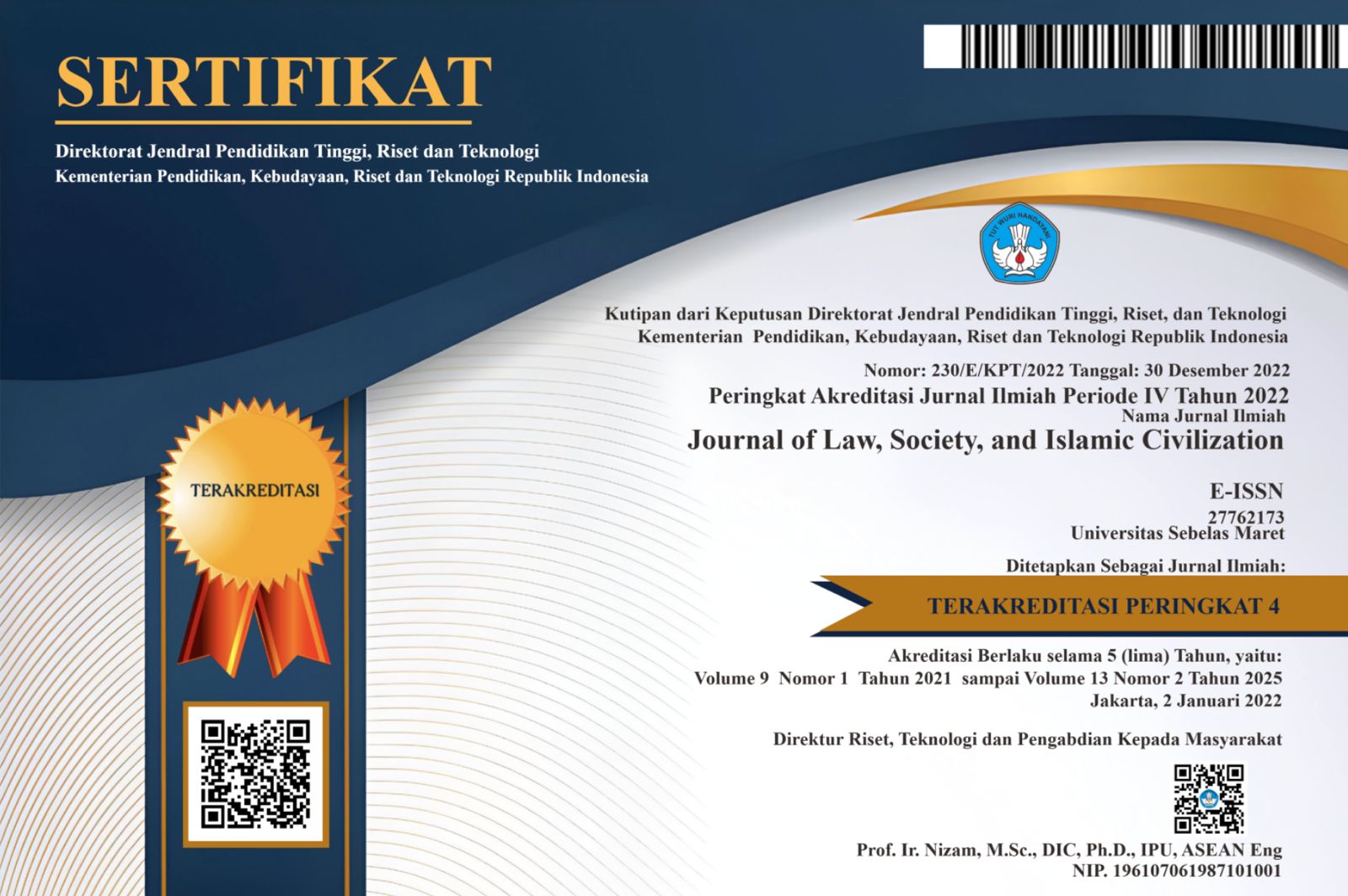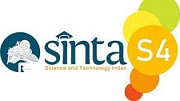Implementasi Fatwa MUI Tahun 1982 Tentang Mentasharufkan Dana Zakat untuk Kegiatan Produktif dan Kemaslahatan Umum (Studi Kasus Pelaksanaan Tasharuf Dana Zakat untuk Kegiatan Produktif di BAZNAS Kota Surakarta)
Abstract
This study aims to determine how the implementation of MUI fatwas regarding the tasharuf of zakat funds for productive activities and public benefit, especially the implementation of tasharuf zaka for productive activities in BAZNAS Surakarta City. The type of research in this study is socio-legal research with a qualitative and descriptive approach. This study used two types of data, namely primary data and secondary data. The primary data in this writing was obtained directly through interviews with amils who served at the Surakarta City BAZNAS office and document studies, while the secondary data were legal materials. The results showed that the tasharuf of zakat funds for productive activities was realized through productive economic programs implemented by considering the economic factors of prospective recipients, this can be seen from the time of implementation of the distribution of zakat funds for productive activities, the form and amount of zakat funds distributed to recipient mustahik. This research also shows that the implementation of the tasharuf of zakat funds for productive activities is still in accordance with Islamic law, which is the main postulate of Islamic law regulate zakat.
Keywords
Full Text:
PDFReferences
Andiani, K., Hafidhuddin, D., Beik, I. S., & Ali, K. M. (2018). Strategy of BAZNAS and Laku Pandai for collecting and distributing zakah in Indonesia. Al-Iqtishad Journal of Islamic Economics, 10(2), 417-440.
Atabik, A. (2016). Peranan zakat dalam pengentasan kemiskinan. ZISWAF: Jurnal Zakat Dan Wakaf, 2(2), 339-361.
H.S, S., & Nurbani, E. S. (2014). Penerapan Teori Hukum pada Penelitian Tesis dan Disertasi. Jakarta: Rajawali Press.
Irianto, S. (2012). Memperkenalkan Kajian Sosio-legal dan Implikasi Metodologisnya. Dalam S. Irianto, J. M. Otto, S. Pompe, A. W. Bedner, J. Vel, S. Stoter, & J. Arnscheidt, Kajian Sosio-legal. Denpasar: Pustaka Larasan.
Musa, A. (2020). Pendayagunaan Zakat Produktif: Konsep, Peluang, dan Pola Pengembangan. Banda Aceh: Lembaga Naskah Aceh.
ND, M. F., & Achmad, Y. (2010). Dualisme Penelitian Hukum Normatif & Empiris. Yogyakarta: Pustaka Pelajar.
Qardhawi, Y. (1986). Hukum Zakat: Studi Komparatif Mengenai Status dan Filsafat Zakat Berdasarkan Qur’an dan Hadis. (S. Harun, D. Hafidzhuddin, & Hasanudin, Penerj.) Jakarta: Litera Antarnusa.
Rozalinda. 2014. Ekonomi Islam: Teori dan Aplikasinya pada Aktivitas Ekonomi, Jakarta: Rajagrafindo.
Syafiq, A. (2016). Zakat ibadah sosial untuk meningkatkan ketaqwaan dan kesejahteraan sosial. ZISWAF: Jurnal Zakat dan Wakaf, 2(2), 380-400.Refbacks
- There are currently no refbacks.












